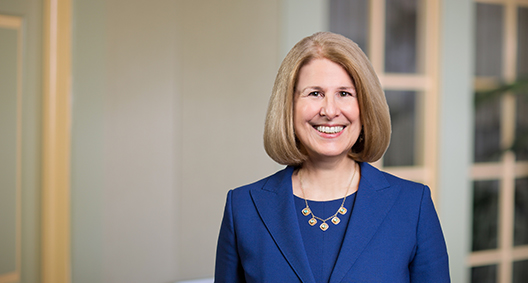Two years ago, Miami hosted the annual North American Bitcoin Conference. And for local digital currency expert Carol van Cleef, the conference crystallized why so few women enter fintech.
During the day there were 1,600 people attending the conference, van Cleef recalled during a recent phone call. The number of women in that crowd, however, was low. “From a substantive standpoint there were maybe a handful [of women]. The other handful was wives or girlfriends of people attending the conference.”
“The night before the conference there was a cocktail party up on the rooftop hotel overlooking the ocean,” van Cleef said. The cocktail party had similar demographics to the conference — van Cleef noticed about five conference women out of 300 or 400 party attendees. While speaking to one of them, she noticed something go past her eyes.
“It was a woman who passed me painted in gold wearing nothing but three stickies,” said Van Cleef. “As people would say, ‘that’s sort of expected.'”
Van Cleef is an expert in fintech, payments, anti-money laundering, Blockchain technology and “everything that comes with that.” As an attorney, she’s also an expert on regulation of technology and has spoken with us about how impending regulations might affect #dctech’s fintech developments.
That cringe-worthy moment in Miami fits into pattern of controversies in the industry that van Cleef says contributes to low female turnout. For instance last summer, when a de facto history book on bitcoin was written, it lacked any mention of female contributors. And earlier this year popular blog Bitcoin Uncensored generated a conversation about sexism after a controversial interview with D.C. cryptocurrency spokesperson Perrianne Boring.
https://twitter.com/PerianneDC/status/744203493565669376
Despite this, van Cleef spoke of fintech as beginning to “mature” and noted that “there are some increasingly good people to look up to.”
In some ways, van Cleef herself is a role model for women in finance. She’s one of the female giants in the local bitcoin scene — together with women like Boring and Andrea Castillo, who manages the Technology Policy Program at George Mason University and advises policymakers on cryptocurrencies.
For her part, van Cleef has carved out her own niche between law and finance.
Growing up in New Jersey near Route 1, she was the daughter of a Methodist minister, and moved often before attending Georgetown University and later earning her J.D. from American University’s Washington College. Afterward, she told us, she became an “accidental tourist” in the world of bank consulting, which set her on the path toward regulatory compliance for emerging currencies like gift cards and money grams.
Van Cleef was introduced to cryptocurrencies in 2008 while representing a now defunct digital currency company called e-gold Ltd.
She told us a federal judge stated that the founders should have anticipated how criminals could use this gold-backed, anonymous digital currency for illegal purposes. Ultimately, e-gold pled guilty to money laundering and illegal money transmitting charges. And van Cleef become involved in bitcoin to help others from making the same mistakes.
That mission means she’s found herself in some interesting places.
“I walked into a presentation and Charlie Shrem was presenting,” van Cleef recalled of a Money 20/20 conference she attended in 2014. “I walked up to him afterward and said, ‘I’m Carol, and if I were you I would shut up otherwise you’ll end up like the guys from e-gold.'”
According to van Cleef, she warned Shrem she had spotted the “number one lawyer” from the Department of Justice’s Money Laundering and Forfeiture Unit at his presentation.
“No one talked to him that way,” van Cleef laughed during our phone call. “Shrem owned an airplane, and a bar.”
Unfortunately, the 22-year-old bitcoin tycoon didn’t heed her warning. Two months later Shrem was arrested getting off a plane at JFK and charged for helping customers from the notorious Silk Road exchange their cash for bitcoin. He served two years in prison.
Today van Cleef lives in McLean, Va., and recently left the law firm Manatt, Phelps & Phillips, LLP, where she was a partner, to join a new firm called Baker & Hostetler LLP. According to her, Baker sought her out specifically for her expertise in cryptocurrency and Blockchain.
“They made me an offer I couldn’t refuse,” she joked.
In her spare time, van Cleef is brainstorming initiatives to help increase female representation in fintech through the Arlington, Va.-based organization Women in Housing and Finance.
Why are there so few women in fintech?







